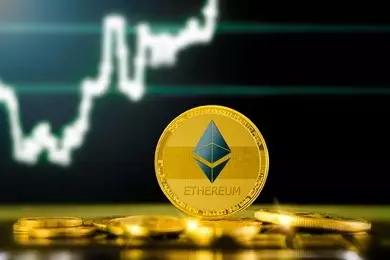Ethereum (ETH) recently underwent a significant software upgrade known as Dencun, aimed at improving the cost-effectiveness of utilizing the network ecosystem, particularly for Layer 2 (L2) networks like Arbitrum, Polygon, and Coinbase’s Base. This update has led to a substantial reduction in transaction costs on these networks, with fees plummeting from dollars to cents or even fractions of a cent. By lowering expenses, the Dencun upgrade is poised to revolutionize Ethereum’s end-user experience and pave the way for the development of new applications and services within the network.
Impact on Decentralized Exchanges and Gas Costs
One of the key benefits of the Dencun upgrade is its impact on decentralized exchanges (DEXs) and gas costs. Gas costs for popular Layer 2 networks such as Arbitrum, Optimism, and Coinbase’s Base are projected to see significant reductions. For instance, projected gas costs for swaps on Arbitrum are expected to decrease from $2.02 to $0.40, while Optimism’s swaps could drop from $1.42 to $0.28, and Coinbase’s Base swaps might go down from $0.58 to $0.01. These cost savings underscore the crucial role of the Dencun upgrade in enhancing the efficiency of Layer 2 networks.
The Technical Aspects of the Dencun Upgrade
The Dencun upgrade introduces a new data storage system that deviates from the traditional approach of storing Layer 2 data directly on Ethereum. By adopting a new “blobs” repository, the upgrade minimizes data storage costs by warehousing information for only about 18 days as opposed to indefinitely. Furthermore, the upgrade addresses congestion concerns by creating more space on the Ethereum network for additional transactions, thereby enhancing overall network efficiency.
Arbitrum, a prominent Layer 2 network, has offered insights into the Dencun upgrade process. It will take approximately one to two hours for blob transactions to begin posting and for the pricing changes specified by EIP-4844 to take effect. Additionally, ArbOS Atlas, an upgrade supporting Arbitrum Chains, will introduce further fee reductions for Arbitrum One, scheduled to be activated on March 18th. These changes include a reduction in the Layer 1 surplus fee from 32 gwei to 0 per compressed byte and a reduction in the L2 base fee from 0.1 gwei to 0.01 gwei, further enhancing cost-saving opportunities on Layer 2 networks.
Despite the successful implementation of the Dencun upgrade, Ethereum’s price has remained relatively unaffected, consolidating below the $4,000 threshold. While ETH attempted to break above this crucial resistance level in recent days, it has struggled to maintain its position above it. However, ETH has shown resilience with gains exceeding 18% over the past fourteen days and nearly 60% over the past thirty days. The introduction of the Dencun upgrade is expected to drive increased demand for ETH, potentially fueling a renewed uptrend that could bring ETH closer to its previous all-time high of $4,878, achieved in November 2021.
The Dencun upgrade marks a significant milestone for Ethereum and its Layer 2 networks, offering cost-saving opportunities and enhancing network efficiency. While the upgrade does come with trade-offs such as relinquishing complete data storage, the benefits it brings in terms of reduced costs and improved performance are likely to drive accelerated adoption and broader accessibility within the Ethereum community. As the network continues to evolve and improve, the stage is set for Ethereum to solidify its position as a leading blockchain platform in the crypto space.















